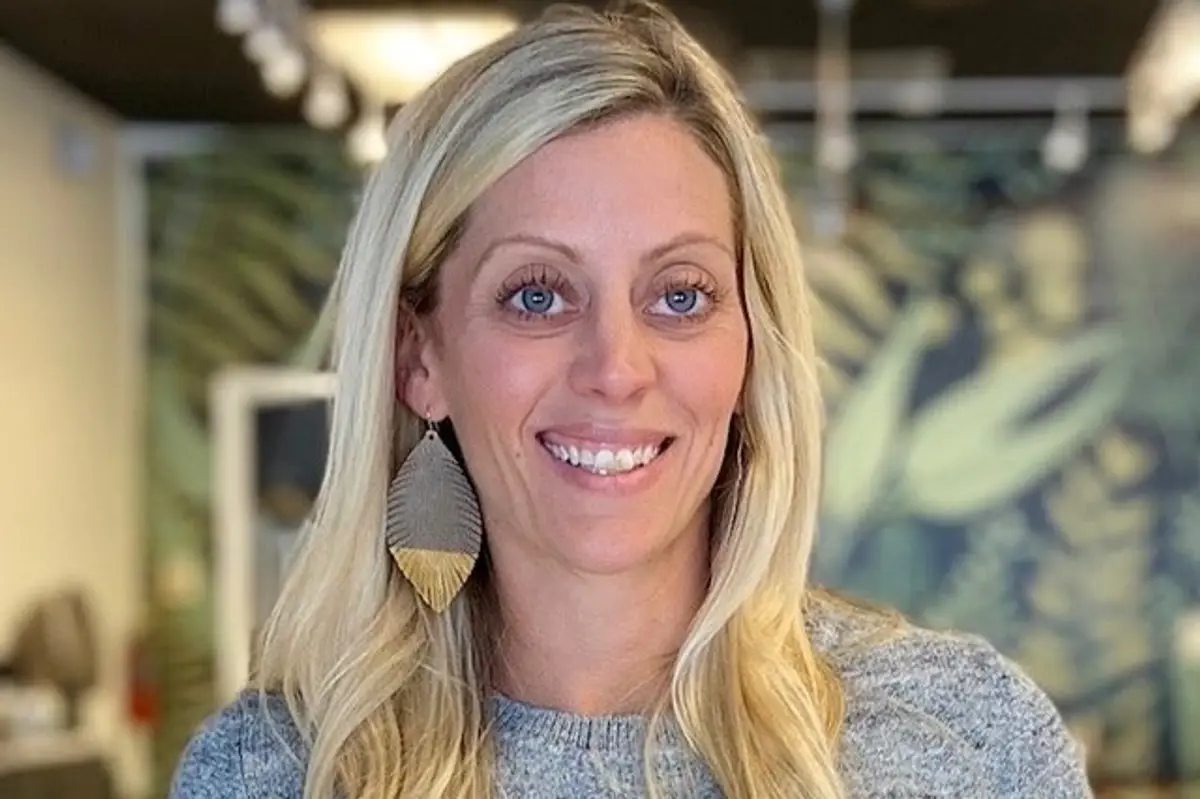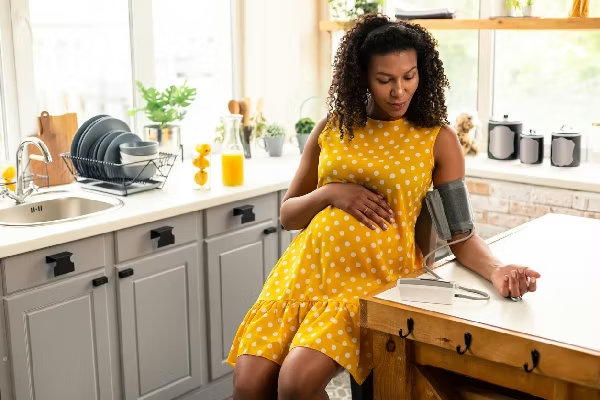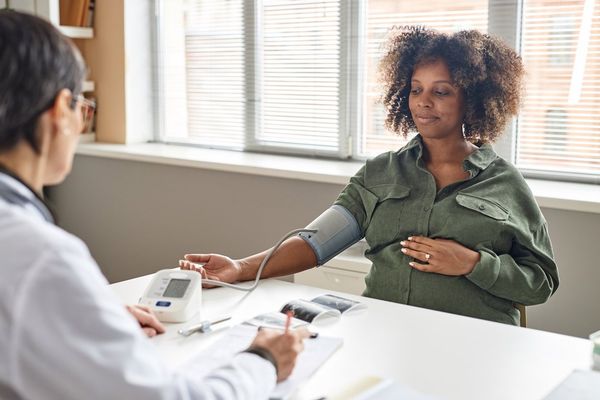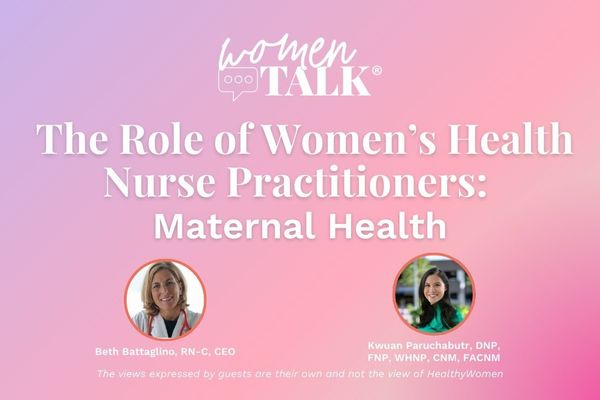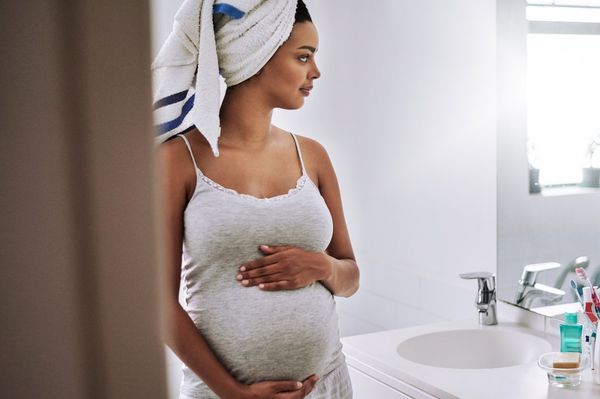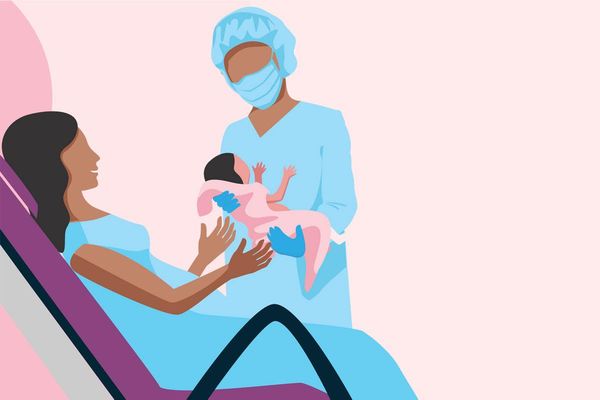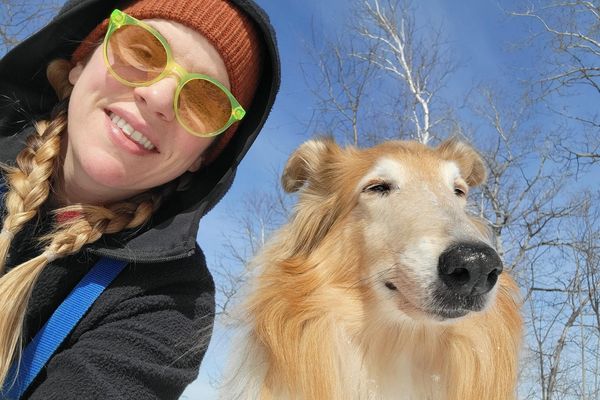As told to Erica Rimlinger
In the summer of 2015, I had big news to share with my friends, family and all my hairstyling clients: I was pregnant. My husband and I were so excited to meet our first child. I was 32 years old and healthy, and the pregnancy was going great.
In my pregnancy’s 18th week, I was working when I felt a new unfamiliar and severe pain right under my breasts in the center of my rib cage. I dismissed the feeling as indigestion, but as the day wore on, the pain grew worse and I found it hard to stand. Before this, I’d had no discomfort at all with the pregnancy. I knew this severe pain wasn’t right, so I went home, called my husband and my doctor, and on the doctor’s advice, we headed to the hospital.
At the hospital, our baby was fine, my bloodwork was fine, and I was sent home with instructions to call if anything changed. The pain continued and worsened throughout the night, and over the next few days. A trip back to the hospital yielded a diagnosis of gallstones. Since I was told it wasn’t safe to have surgery past a pregnancy’s 20th week, I went into surgery immediately to remove my gallbladder.
I woke up from the surgery in the same pain I was in before. In fact, now I had surgical pain on top of the searing pain below my rib cage. I had headaches and fatigue and I couldn’t keep food down, so I called my surgeon and obstetrician (OB) to ask if this was normal. My gallbladder surgeon thought these sounded like normal pregnancy symptoms, but my OB did not. I was admitted to the hospital again.
Even as test after test returned no diagnosis, my OB relentlessly searched for a cause. I will always be grateful for this because I started to doubt my instincts. Since this was my first pregnancy, I thought maybe this is just how pregnancy is for me.
Then a blood test revealed the source of my misery: I had HELLP syndrome, and I had to deliver the baby immediately, at 21 weeks gestation. My husband and I were shocked, confused and had no idea what HELLP syndrome was. The doctors quickly explained it’s a rare pregnancy complication that breaks down red blood cells, raises liver enzymes and reduces platelets. Untreated, it can be fatal to mom and baby, and the only effective treatment is the immediate delivery of the baby.
My husband tried to argue with the doctor. He pulled the doctor into the hallway and asked, “What is going on? The baby can’t survive at 21 weeks.” The doctor explained the situation plainly. If the baby wasn’t delivered now, the baby and I would both die. If the baby was born now, he would likely die, but I would live. There were no good choices, and the clock was ticking. At that point, I could have had a stroke and died at any moment.
We rushed into labor and delivery, where I was induced immediately. I was in a medicated fog. I couldn’t believe this was real life. When the baby arrived, we named him Brixton. He never drew breath.
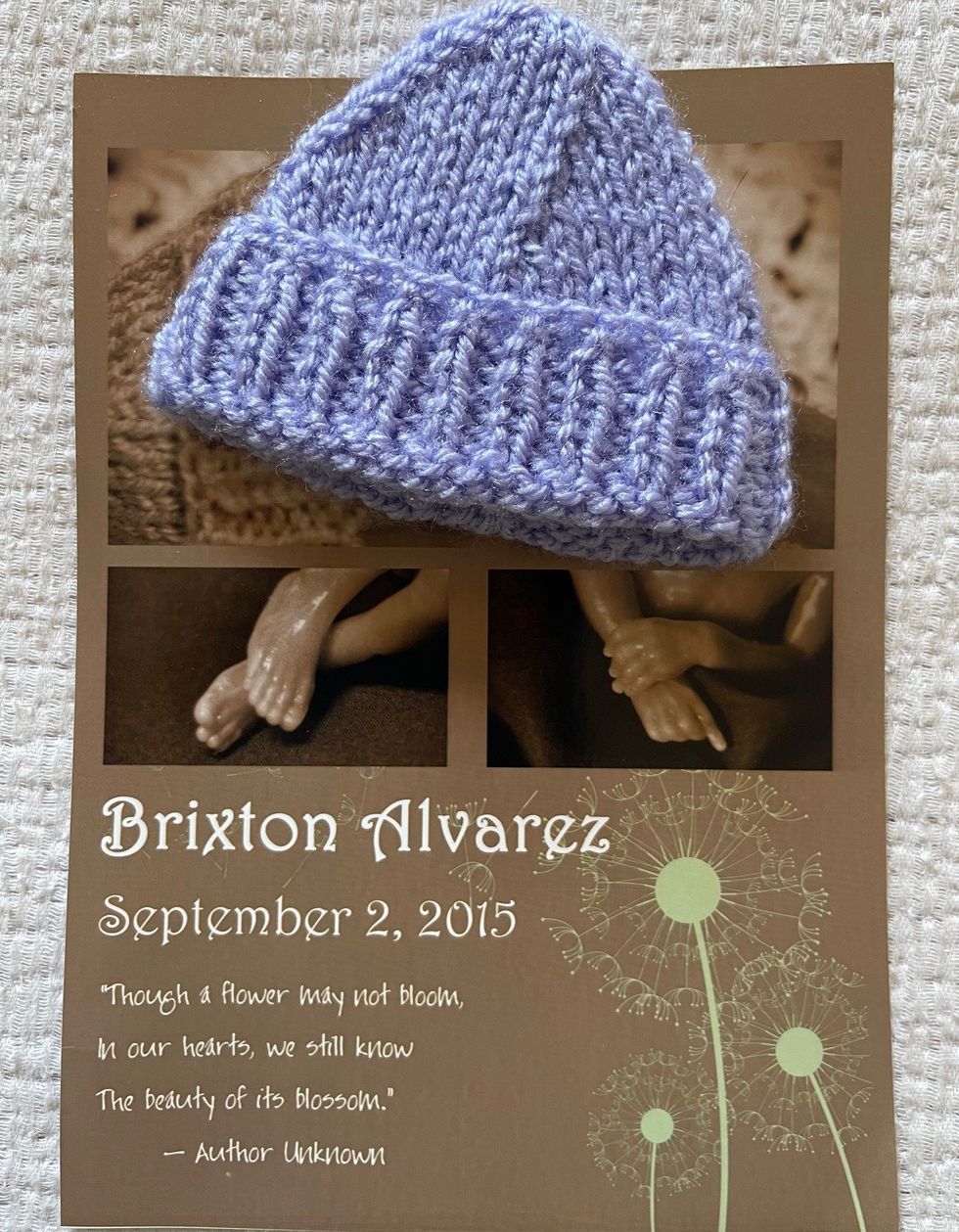
I vividly remember holding Brixton, with my sister and husband gathered around. The nurses had wrapped up his little body in a blanket. During that short hour we had with him, I felt strongly that God was with us. I had an overwhelming sense of love, peace and gratitude for this baby who had made me a mother.
After the birth, my blood pressure spiked, and I had to take medication for weeks to control it. Being wheeled out of the labor and delivery unit of the hospital, I envied the mothers leaving with a baby in their arms, surrounded by smiling family members. I was sick, medicated, miserable and thought, “I will never do this again.”
At home, we grieved the loss of our baby boy. My milk came in and I dreaded going back to work and having to retell the horrible story all day long. I had to know, Why did this happen to me?
HELLP syndrome is rare. Even more rare is one of its potential causes: an autoimmune disorder called antiphospholipid syndrome (APS). This blood-clotting disorder often goes undiagnosed until a stroke or HELLP syndrome makes its presence known. I learned I had APS, and that it ran in my family.
With time, faith in God and lots of therapy, our pain over Brixton’s loss eventually healed. We decided that we’d try to have another baby now that we knew how to control my APS.
I was equally terrified and excited when I saw the positive pregnancy test, but the pregnancy progressed uneventfully except for how closely monitored I was. I regularly saw a hematologist as well as a high-risk OB, and I had tons of ultrasounds. Remembering what happened last time, we told people about the pregnancy much later.
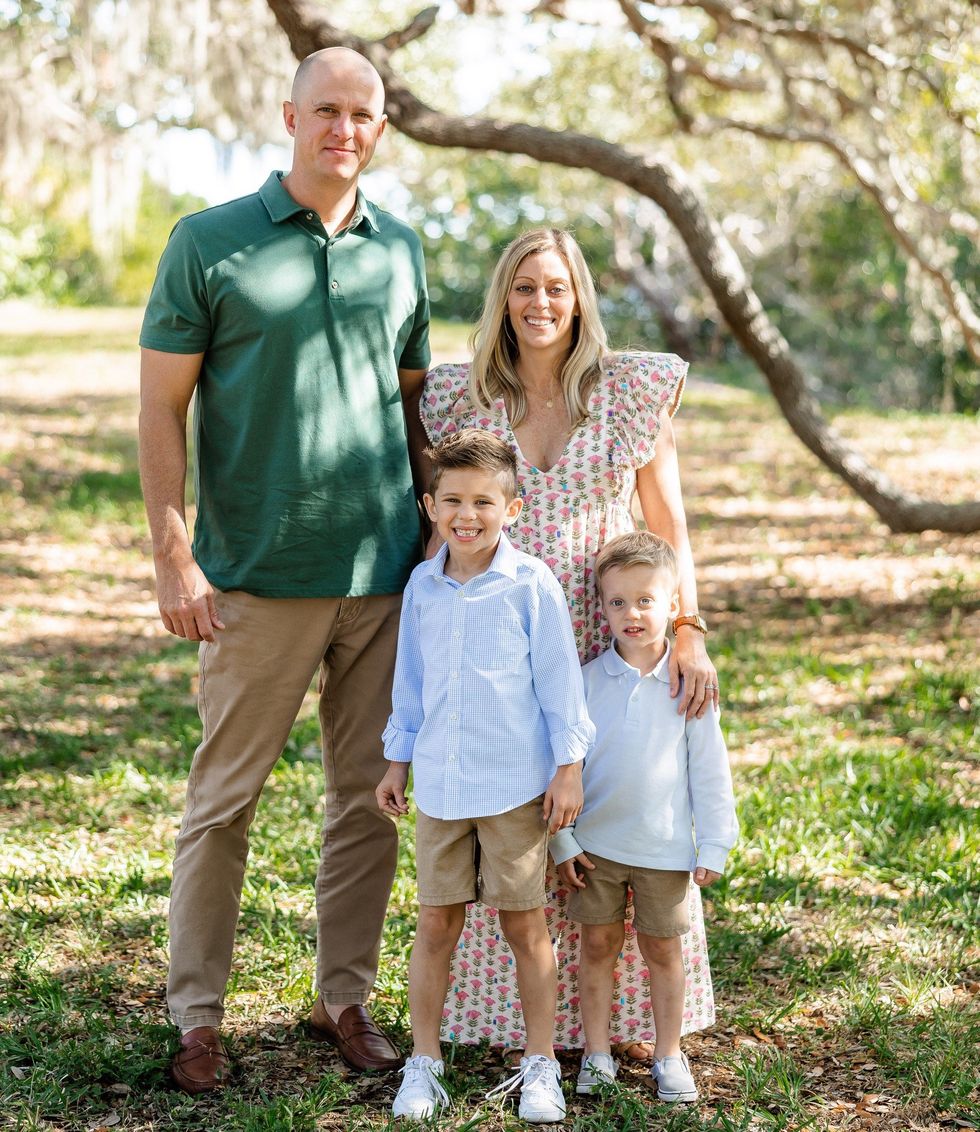
My son Elliott, now 8 years old, was a blessing from God. I didn’t have one bad test result during all my months of blood work. I was induced at 39 weeks, and labor went as perfectly as it possibly could. Encouraged, we decided to have another baby.
Our next son, Hunter, arrived in May 2020, during the pandemic lockdown. The pregnancy went smoothly again, thanks to vigilant medical care, but at 37 weeks gestation, I was sitting on the couch and my vision blurred. I didn’t wait. I called my doctor who told me to go straight to the hospital. There, we found my blood pressure was high. I was induced immediately to prevent a full relapse of HELLP syndrome, and my son and I quickly recovered from the birth.
I don’t want to scare pregnant women by sharing Brixton’s story, but I wish I’d known about HELLP syndrome when I was pregnant. Talking about pregnancy risks can be scary, but open conversations can help women become better advocates for themselves. For this reason, I’m happy to talk about our family’s experience. It might prevent another woman from getting as sick and coming as close to death as I did.
Every year on Brixton’s birthday, my husband and I quietly acknowledge our first son. I occasionally look at pictures of Brixton, and the little hat he wore when we held him for the first and last time. Every year, our memories of our rainbow baby lose a bit more of their sting and are replaced instead with a bit more joy. I’ll never stop feeling love and gratitude for my first baby and his place in our family.
Have your own Real Women, Real Stories you want to share? Let us know.
Our Real Women, Real Stories are the authentic experiences of real-life women. The views, opinions and experiences shared in these stories are not endorsed by HealthyWomen and do not necessarily reflect the official policy or position of HealthyWomen.

